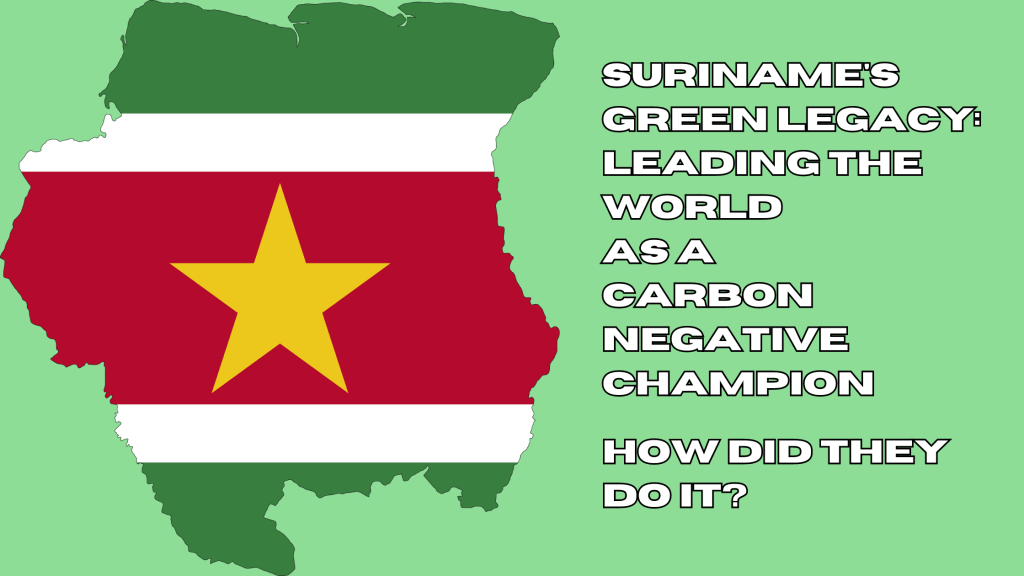
Poll: ????? ?? ????? ????????? ?? ?????? ?????????
With 55 votes cast, our LinkedIn community delved into the green depths of a crucially relevant question. The spotlight? Carbon negativity—a goal as elusive as it is essential. Suriname, alongside Cuba, Vietnam, and the Maldives, was put under the environmental microscope.
Poll results
| Cuba | 27% |
| Suriname | 27% |
| Vietnam | 9% |
| Maldives | 36% |
Suriname, tying with Cuba and just shy of the Maldives, raised some eyebrows and curiosity.
So, let’s dig a bit deeper, shall we?
The right answer is Suriname.
But how did Suriname become carbon-negative?
Suriname’s secret sauce to carbon negativity lies in its lush, expansive rainforests, which cover a staggering 93% of the country. These green giants are not just trees; they’re natural carbon sinks, absorbing more CO2 than the country emits. Add to this a relatively small population and low industrial activity, and you’ve got a recipe for a carbon-negative haven.
Net Zero by Narsi
Insights and interactions on climate action by Narasimhan Santhanam, Director - EAI
View full playlistIs it possible for other countries, especially larger ones, to emulate Suriname?
Now, here’s the million-dollar question. Larger countries can certainly take a leaf out of Suriname’s book, but it’s a challenging recipe to replicate. The key ingredients—vast forests, low population density, and minimal industrialization—are a rare combo. For big nations, the journey to carbon negativity would involve a seismic shift in energy policies, urban planning, and lifestyle changes. It’s not impossible, but it’s a tall order.
Lessons from Suriname
Suriname teaches us a valuable lesson: preserving natural ecosystems is a cornerstone in the fight against climate change. It’s not just about planting new trees; it’s about safeguarding existing ones. Also, embracing a low-impact lifestyle and sustainable development can significantly contribute to a country’s carbon footprint—or lack thereof.
Other Carbon-negative Countries
Joining Suriname in this exclusive club are a few other nations like Bhutan, a beacon of sustainability with its commitment to carbon neutrality and environmental conservation. These countries, though small, punch above their weight in the global fight against climate change.
Wrapping it up with a green bow
This poll is more than a trivia quiz; it’s a window into the diverse strategies countries employ to tackle carbon emissions. Suriname’s example, while unique, is a reminder that every nation, big or small, has a role to play in this global endeavor. It’s about balancing development with preservation, modernity with nature. In the grand scheme of things, every effort counts, every tree matters, and every country has the potential to tip the scales towards a greener, cleaner planet. Let’s keep this conversation growing, one tree, one policy, and one vote at a time.





 Our specialty focus areas include
Our specialty focus areas include

 ZEV India Partnership – Driving Truck Electrification through Collaboration
ZEV India Partnership – Driving Truck Electrification through Collaboration

